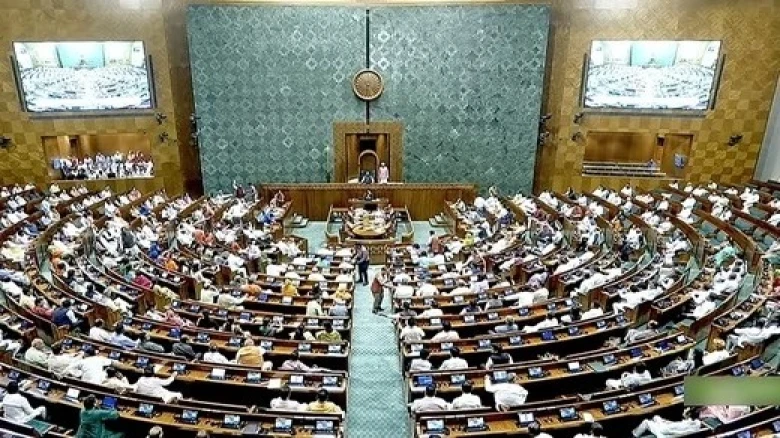Regional

The Parliament on Monday passed two crucial bills, the Jammu and Kashmir Reservation (Amendment) Bill and the...
Digital Desk: The Parliament on Monday passed two crucial bills, the Jammu and Kashmir Reservation (Amendment) Bill and the Jammu-Kashmir Reorganisation (Amendment) Bill 2023. This significant development coincided with the Supreme Court's affirmation of the abrogation of Article 370, a move that had reshaped the region's political landscape.
Union Home Minister Amit Shah, a key proponent of the bills, presented them in the Rajya Sabha after they received approval in the lower house on December 6. The upper house witnessed an intense and prolonged debate, leading to a walkout by the Opposition. Despite the challenges, both bills were successfully passed in the Rajya Sabha through a voice vote.
During his statement, Minister Shah emphatically declared that Pakistan-occupied-Kashmir (PoK) unequivocally belongs to India, asserting that no one can snatch it away. He emphasized the BJP's unwavering commitment to preserving every inch of the country's land, attributing the existence of PoK to an untimely ceasefire in Kashmir.
The Jammu and Kashmir Reservation (Amendment) Bill, 2023, introduced in the Lok Sabha on July 26, 2023, seeks to amend the Jammu and Kashmir Reservation Act of 2004. The amendment focuses on socially and educationally backward classes, encompassing residents of villages declared as such by the Union Territory (UT) of Jammu and Kashmir, those in areas near the Actual Line of Control and International Border, and identified other backward classes. Notably, the bill replaces the term "weak and underprivileged classes" with "other backward classes," eliminating the former's definition from the Act.
Subsequently, Minister Shah presented the Jammu and Kashmir Reorganisation (Amendment) Bill, 2023, aimed at amending the Jammu and Kashmir Reorganisation Act, 2019. This act was introduced on the same day in July. The amendment increases the total number of seats in the union territory to 90, reserving seven seats for Scheduled Castes and nine for Scheduled Tribes. The Lieutenant Governor is now empowered to appoint a maximum of two individuals from the Kashmiri migrant community to the Legislative Assembly, with one of them mandated to be a woman. The term "migrants" refers to those who relocated after November 1, 1989, and are officially registered with the Relief Commissioner.
The passage of these bills marks a significant step in reshaping the socio-political dynamics of Jammu and Kashmir. The government's emphasis on reservation and representation underscores its commitment to inclusivity and equitable development in the region. As the nation grapples with these transformative changes, the aftermath is likely to resonate across political and social spheres, shaping the future trajectory of Jammu and Kashmir.
Leave A Comment